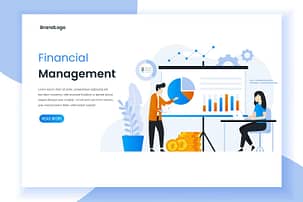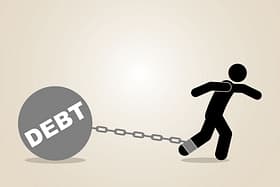This page is dedicated to implementing the money rules, with some basic guidance on how to do it. These do need to be done in order so that the desired outcome is achieved in the minimum time. It should be noted that nothing is complicated, but that does not make it easy. This is a long-term game to ensure you have the best life possible, including retirement.
As I am not a financial adviser, nothing on this site is financial advice, it is general information only.
Rule #1 – You and your partner must be on the same page.

This is the most important rule, as you will both be each other’s support and motivation. Being open and communicating well is part of a healthy relationship, being on the same page with your partner about your financial goals is critical. There will be times when you need each other’s support, hence communication is the key.
This may lead on to the question of “how do I get my partner on the same page?” which can be challenging. It is quite easy to start with the how, e.g., we need to make a budget.
While this may work for some, however, I find that starting with the why is more effective. E.g., We work too hard and earn too much to be living paycheck to paycheck. I want to ensure we can to do the things we want, but I cannot do it alone. I need your help so we can live and enjoy life.
Rule #2 – Live on less than you earn and Rule #3 – Definitely no consumer debt, ideally no debt.

Because life happens, this is where an “oh crap” fund is initiated. This should be separate account with about $1,500 in it to begin with, more will be added later. At this stage it is just the initial starting figure to give you a small buffer for when things go pear shaped.
As part of our budget, we will be working to eliminate all our consumer debt (everything but the mortgage). It also means no more adding to the debt you have, so get rid of your after-pay, before-pay, sideways-pay, credit cards, etc. They are making everyone else rich, not you. To eliminate your debt, it needs to list, the smallest debt first though to the largest debt, including the $20 you borrowed from Barry.
During the debt elimination phase, we remove all non-essential items from our budget, i.e., no going out to restaurants, movies, the pub, etc. as we need to throw every spare dollar, we can at the consumer debts until they are gone. The smallest debt being the priority. The other debts are only receiving the minimum required payment, until the first one is gone, then the next one receives everything that was being paid on the first debt plus its minimum payment until it is gone, and so.
Once they are ALL gone then we build a much healthier “oh crap” fund. This should have around 4 month’s worth of expenses. It came in very handy when we had to replace the hot water unit and the gas ducted heating system withing weeks of each other. Due to having a “oh crap” fund this ended up as much more of an annoyance rather than an oh my god how do we pay for this. This fund is only for emergencies, not, let us go on a holiday at Christmas or buy a new car. Anytime money is taken out from this fund it needs to be replaced as fast as possible.
By this stage, you should have no consumer debts and a nice “oh crap” fund standing by. So, what is next? Now it is time so save for a house deposit, a decent one, 20%, if you do not already have a mortgage.
Remember here you have no debt payments, so saving for a deposit on a house will go quicker than you think.
Now that we “own” (paying the mortgage) our home we loosen the purchase strings and have items like going out in our budget. Some other items to add into our budget are things like putting money aside for replacing the car, mobile phone, laptop, holidays, more investing, money for helping the kids with uni fees, etc. I have separate accounts for a number of these, yes, we do have a few accounts. 🙂
It is also here that we add to our super over and above the employer contributions to achieve a total of 15% of our wages going into our super. This will maximize what we have when we retire which is as much of a financial one as a chronological one.
Rule #4 – Do not become Scrooge.

Having no payments for anything to anyone, all the money you earn is yours to keep. As you have no payments then the question can be what now? Well, keeping in mind that there are only 3 things to do with money.
Give, spend, and invest.
Yes, giving some of it away is a good thing to do. This can be charities, paying for someone else’s meal, or gifting a loved one some money. Giving makes you feel really good, and it is fun, more so than the spending part. We do of course need to keep investing and growing our wealth so we can give and spend more, and setup the next generation financially.
All the above does not consider your situation, which may mean a some of the steps will need tweaking.